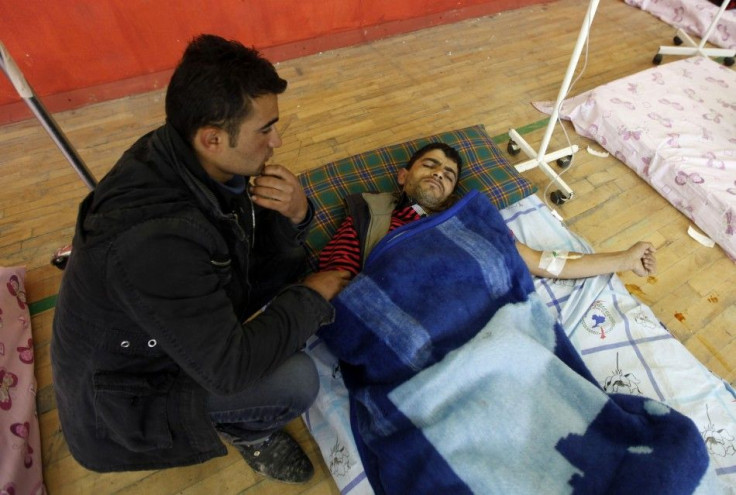Search for Earthquake Survivors Ends in Turkey, With Death Toll Near 600

The death toll from the earthquake in southeastern Turkey last week rose to 596 Sunday, the day after authorities stopped searching for survivors and focused on helping thousands of homeless families in crisis.
In Ercis, the town hit hardest by the magnitude-7.2 quake that devastated Van province on Oct. 23, some shops reopened on Sunday, electricity was switched back on in parts of town, and one bank's ATM began working.
But with barely any of Ercis's nearly 100,000 residents ready to return to their damaged homes with strong aftershocks still rattling the area, life is anything but normal. One aftershock Sunday morning registered at magnitude 5.3.
Winter is fast approaching, temperatures plunge at night, and young and old in particular are falling sick in tent encampments established by relief agencies on the outskirts of town.
The government's disaster-management Web site said more than 43,000 tents had been handed out in Van. Officials say that is more than needed because people whose homes are not so badly damaged are demanding tents as they feel safer under canvas.
Our house is in good shape but we live in a tent due to fear. We will go back once the aftershocks are gone and the government says our house is safe, said Fadli Kocak, owner of a bakery in Ercis, who hopes to be back in business in a week.
Many people were queuing to register for tents Sunday, a first step to having an inspection done of their home, as authorities say they will hand them out only after verifying that a building is too risky to live in.
The problem here is that you can't give 100,000 tents in a town whose population is equal to that, Yalcin Mumcu, who coordinated search and rescue operations in Ercis, told Reuters.
Our people need to the trust the government, too. Everybody is asking for tents. They need to be patient, if the prime minister says they are going to build a new, better Van, I am sure they will, he said.
The relief operation is politically sensitive as the southeast is where most of Turkey's Kurdish minority lives, and the army has been fighting a separatist insurgency there that has cost more than 40,000 lives since it erupted in 1984.
After criticism in the first days of the disaster, state authorities cranked up relief operations, asking for foreign help providing tents, containers, and prefabricated houses.
Hordes of people in provincial capital Van have also clamored for tents even though far fewer buildings collapsed there. Villagers in surrounding hills are seen as more in need because most of their primitively built houses were destroyed, and they would be caught in the open if there is early snow.
Most of us sleep outside. The village has received coal and blankets but no tents, said Mehmet Siddik Demirtas, headman at Yukari Isikli village, about 10 kilometers (6.2 miles) from Ercis.
We go every day to the city of Ercis to ask for tents, he said, but they tell us to wait.
(Writing by Simon Cameron-Moore; Editing by Louise Ireland)
© Copyright Thomson Reuters {{Year}}. All rights reserved.






















